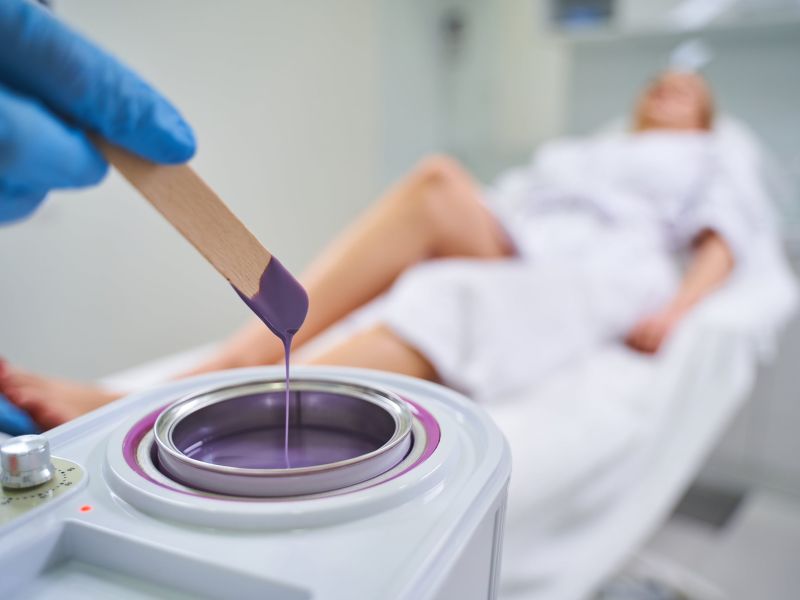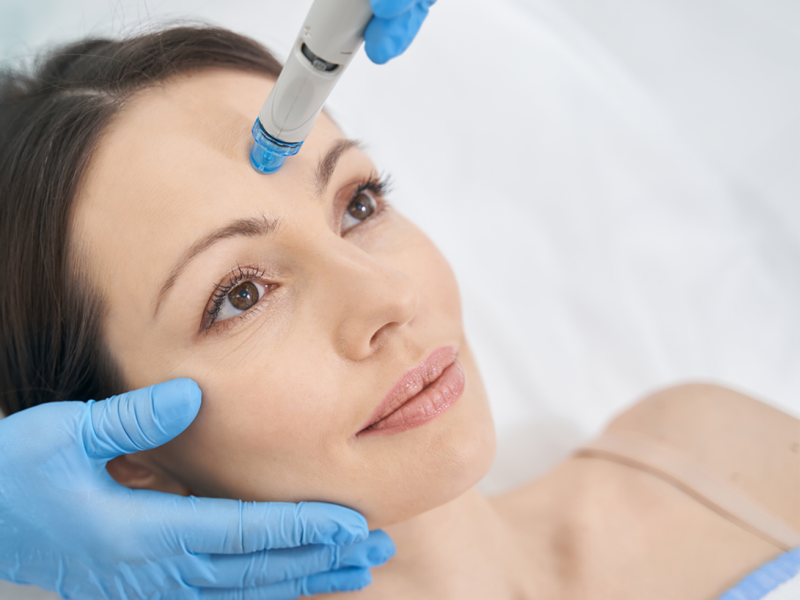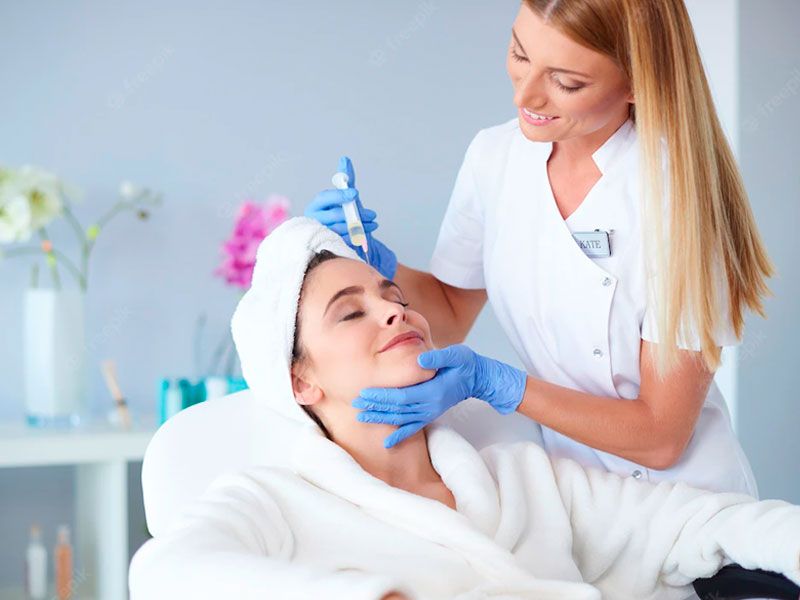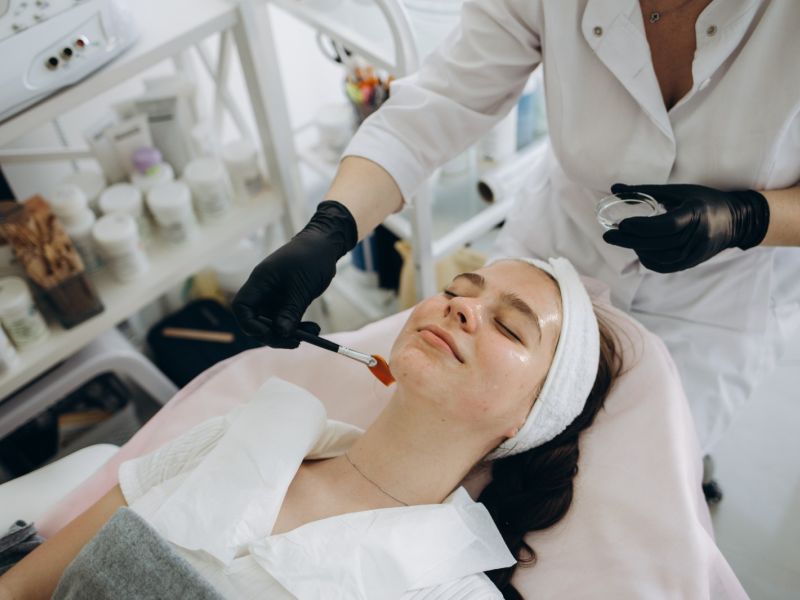Should I Stop Using Moisturizers and Sunscreen Because I Have Acne-Prone Skin? Skincare Routine for Acne-Prone Skin

Dealing with acne-prone skin can be a frustrating and challenging experience. Whether you’re battling occasional breakouts or struggling with persistent acne, finding the right skincare routine is essential for managing your condition effectively. One common misconception among individuals with acne-prone skin is the belief that using moisturizers and sunscreen can exacerbate acne. However, proper skincare, including the use of appropriate moisturizers and sunscreen, is crucial for maintaining healthy skin and managing acne. Let’s delve into why you should continue using these skincare essentials and explore an effective skincare routine for acne-prone skin.
Understanding Acne-Prone Skin:
Acne is a common skin condition characterized by the presence of pimples, blackheads, whiteheads, and often inflammation. Acne occurs when hair follicles become clogged with oil and dead skin cells, leading to the growth of bacteria and subsequent inflammation. While various factors contribute to the development of acne, including genetics, hormones, and lifestyle, proper skincare plays a significant role in managing the condition.
The Importance of Moisturizers:
Contrary to popular belief, individuals with acne-prone skin should not skip moisturizing. Even oily or acne-prone skin requires hydration to maintain a healthy moisture barrier. When the skin lacks moisture, it may compensate by producing more oil, potentially leading to increased breakouts. However, it’s essential to choose the right moisturizer for acne-prone skin.
Skincare Routine for Acne-Prone Skin:
Here’s a suggested skincare routine tailored to address the specific needs of acne-prone skin:
Cleanse Properly: Use a gentle, non-comedogenic cleanser twice daily to remove dirt, oil, and impurities without irritating the skin. Look for cleansers containing salicylic acid or benzoyl peroxide to help unclog pores and treat acne.
Be Gentle: Avoid harsh scrubbing or aggressive exfoliation, as it can worsen acne by causing irritation and inflammation. Use gentle motions when cleansing the face, and avoid abrasive scrubs.
Moisturize Regularly: Apply an oil-free, non-comedogenic moisturizer to keep the skin hydrated. Look for lightweight, gel-based, or water-based moisturizers that won’t clog pores.
Use Non-Comedogenic Products: Choose skincare and makeup products labeled as “non-comedogenic” to prevent pore clogging and minimize breakouts.
Sun Protection: Apply a broad-spectrum sunscreen with SPF 30 or higher daily to protect the skin from harmful UV rays. Sunscreen is essential to prevent acne scars from darkening due to sun exposure.
Avoid Touching Your Face: Refrain from touching or picking at acne-prone skin, as this can spread bacteria and worsen inflammation, leading to more breakouts and potential scarring.
Be Careful with Makeup: Opt for oil-free, non-comedogenic, and fragrance-free makeup products. Remove makeup thoroughly before bedtime to prevent pore clogging.
Limit Exposure to Irritants: Avoid skincare products containing alcohol, artificial fragrances, and harsh chemicals, as they can irritate the skin and exacerbate acne.
Hydrate and Eat a Healthy Diet: Drink plenty of water to keep the skin hydrated from within. Maintain a balanced diet rich in fruits, vegetables, and whole grains. Some individuals find that certain foods, such as dairy or high-glycemic-index foods, can exacerbate acne.
Consult a Dermatologist: If acne persists despite following a skincare routine, consider consulting a dermatologist. They can provide personalized treatment options, such as prescription medications or procedures, tailored to your skin’s needs.
Patience and Consistency: Results may not be immediate, so be patient and consistent with your skincare routine. It may take some time before you notice improvements, but sticking to a routine can yield positive results over time.
While managing acne-prone skin can be challenging, proper skincare is essential for maintaining healthy skin and managing breakouts effectively. Moisturizers and sunscreen play crucial roles in skincare routines for acne-prone skin and should not be skipped. By following a tailored skincare routine, avoiding irritants, and seeking professional advice when needed, individuals with acne-prone skin can achieve clearer, healthier-looking skin over time. Remember, consistency is key, and finding the right products and treatments may require some experimentation. If in doubt, consulting a dermatologist can provide valuable guidance and support on your skincare journey.
Other Recent BLogs
-
 Skin Care for All Seasons, Adjusting Your Routine to Weather’s Whims
Skin Care for All Seasons, Adjusting Your Routine to Weather’s Whims -
 The Role of Stress in Skin Health: Managing Your Complexion in High-Pressure Times
The Role of Stress in Skin Health: Managing Your Complexion in High-Pressure Times -
 Understanding the Differences Between Teen and Adult Acne: A Guide from Elara
Understanding the Differences Between Teen and Adult Acne: A Guide from Elara -
 Should I Stop Using Moisturizers and Sunscreen Because I Have Acne-Prone Skin? Skincare Routine for Acne-Prone Skin
Should I Stop Using Moisturizers and Sunscreen Because I Have Acne-Prone Skin? Skincare Routine for Acne-Prone Skin -
 Skincare Care Routine For Acne Prone Skin
Skincare Care Routine For Acne Prone Skin -
 Salicylic Acid Treatment For Acne
Salicylic Acid Treatment For Acne -
 Understanding Acne And It’s Treatment
Understanding Acne And It’s Treatment -
 Chemical Peel vs. Carbon Peel: What’s The Difference?
Chemical Peel vs. Carbon Peel: What’s The Difference?









